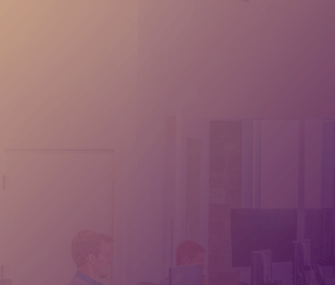At the beginning of the pandemic, when the office-based world was engaged in full-time remote working, there was talk of offices closing their doors to employees for good. Fast-forward to 2022, and this couldn’t be further from the truth.
In February 2022, we surveyed our clients to find out how they’re utilising office space today. 21% said they’ve returned to the office full time and 15% have gone “fully remote”, with no plans to return anytime soon. But the majority (64%) have embraced hybrid working.
The Correct Group is one such company. Founded in 2002 and headquartered in the UK, it delivers bespoke IT solutions to hundreds of firms worldwide, addressing primary issues around security and compliance, among other IT-related things.
Adam Coppel Correct Group’s founder and managing director. Speaking with Free Office Finder, he explains that almost all of his staff worked full-time in the UK or international office prior to the pandemic. When the Covid-19 lockdown hit, they had to adapt — and quickly.

Adam Coppel, founder & MD, leads a hybrid team.
Flexible offices for agile businesses
Fortunately, Adam’s team were used to communicating with people remotely, so “it wasn’t such a big change for us to enable each member of staff to have their telephone extension ringing on an application on their phone or desktop computer.”
However, not all businesses were able to adapt so easily, and tickets to Correct Group’s help desk increased by almost 400%. Most queries related to changes to working practices.
“We became especially busy due to the pandemic,” says Adam.
“Many of our clients in badly hit sectors didn’t just need to work remotely. In some cases they were furloughing or making staff redundant. We saw all sorts of companies struggling with the challenge and had to help them in many ways.
“They could take a flexible serviced office at half the size and a much lower cost.”
“Our clients wanted and needed [flexibility] too. Some were completely abandoning their office leases. They wanted to move their physical phone systems and file servers out of the old server rooms and into the cloud hosted versions.
“Once they were moved they could work flexibly from any office space. They could take a flexible serviced office at half the size and a much lower cost, and their staff could work some days in the office and some days at home.
Embracing a hybrid office approach
For Adam, returning his own team to the office on a part-time basis was a no-brainer. Firstly, Correct Group needs a physical space in which to meet clients and receive hardware.
“The transport connectivity of our office allows fast response to greater London and our clients need and require this, sometimes at short (or no) notice,” he explains.
“Not all the work that we do can be done remotely. Some of the hardware we support needs to arrive at our offices and be configured by our project engineers.”
Secondly, the office is a vital resource when it comes to learning and mentorship. “Our new engineers ideally needed to sit with their colleagues to learn our processes,” Adam adds.
“We allowed staff to ‘rota’ their presence in the office. We know there’s no substitute for working with your colleagues and our staff have really enjoyed returning to be with each other. Some have also enjoyed spending a little more time with their families.
“This experience has taught us that we’re resilient enough to be able to mix our modes of work and manage our workload and staff, wherever they are.”
When returning to the office, Correct Group’s primary concern was to maintain the quality of its service whilst keeping staff and clients safe.
“We adapted our office to provide workplace testing and decorated and rearranged our space to allow staff to dock their laptop at any desk. Office cleaning was maintained throughout, despite fewer people being in the office,” Adam explains.
Maintaining an adaptive mindset
In the short-term, Adam is asking staff to work in the office at least two to three days a week — or more if they wish. (It’s easy to forget that not everyone enjoys working from home.)
In the medium term, “we’d like to promote the office culture again whilst remaining flexible. We need to be adaptable to any future circumstances, however much we hope that we are all returning to a more positive normality.”
One thing’s for certain though: the office remains as important as ever, especially when it comes to collaboration, learning and overall morale.
“The office has always felt like a hub to our activities with people and deliveries coming and going. It wouldn’t be practical for the entire organisation to become remote.
“…interpersonal professional relationships seem better developed when colleagues physically see each other.”
“We realise that engendering a team spirit and passing knowledge from one staff member to another is not as easy to achieve using remote meeting software such as Teams and Zoom.
“In some cases, Teams is far better for collaborative working, but interpersonal professional relationships seem better developed when colleagues physically see each other.
“Imagine joining a team in an organisation like ours, that supports hundreds of other organisations every day. Each of those client organisations has different work cultures and our staff must work with each of these clients in the way that they want.
“They sometimes need the immediate support of their colleagues to help them do that best. Being together to work is simply better!”
If you’re looking for a flexible hybrid office, use the Free Office Finder platform today. We’ve helped the likes of the BBC, Uber and PwC to find outstanding offices on flexible terms.






